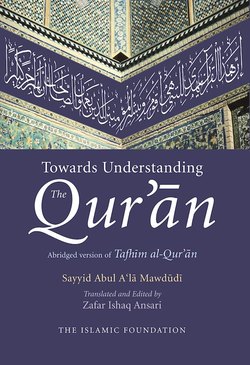Читать книгу Towards Understanding the Qur'an - Sayyid Abul A'la Mawdudi - Страница 101
На сайте Литреса книга снята с продажи.
ОглавлениеAl-Baqarah 2: 181–4
This is an obligation on the God- fearing. (181) Then if anyone alters the will after hearing it, this sin shall be upon them who alter. Surely Allah is All- Hearing, All-Knowing. (182) He who suspects that the testator has committed an error or injustice and then brings about a settlement among the parties concerned incurs no sin. Surely Allah is Much-Forgiving, Most Compassionate.
(183) Believers! Fasting is enjoined upon you, as it was enjoined upon those before you, that you become God- fearing. (184) Fasting is for a fixed number of days, and if one of you be sick, or if one of you be on a journey, you will fast the same number of other days later on. For those who are capable of fasting (but still do not fast) there is a redemption: feeding a needy man for each day missed. ▶
when God revealed a set of laws regarding the distribution of inheritance (see Surah al-Nisa’ 4: 11 ff.), the Prophet (peace be on him) further elucidated the laws relating to inheritance and testamentary disposition by expounding three rules. First, that no person can make any will regarding his estate in favour of any of his legal heirs. The portions of the legal heirs were laid down in the Qur’an and it was not permitted either to increase or decrease them. Second, that testamentary disposition might be made only to the extent of one-third of the estate, but no more. Third, neither a Muslim nor a non-Muslim could be each other’s legal heirs.
52
